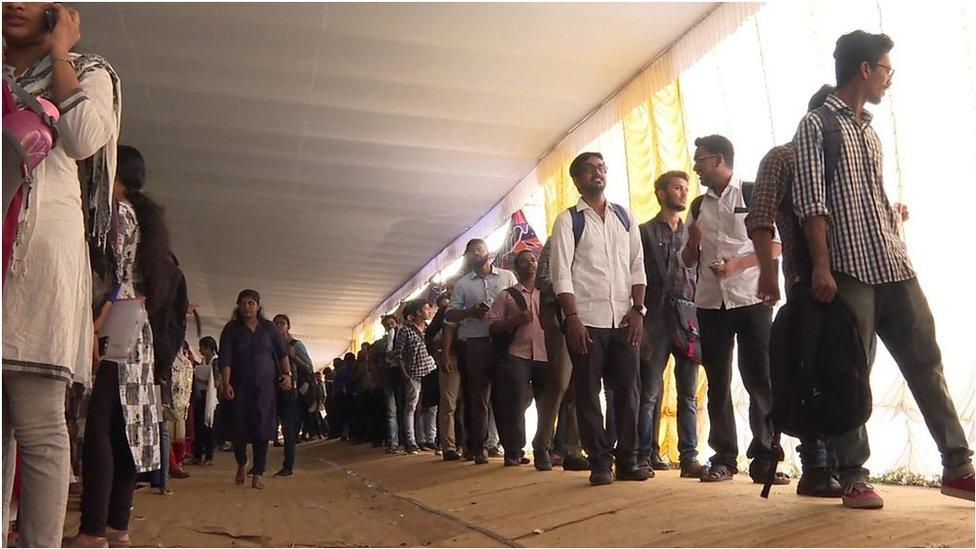India election 2019: Narendra Modi votes in Ahmedabad
- Published
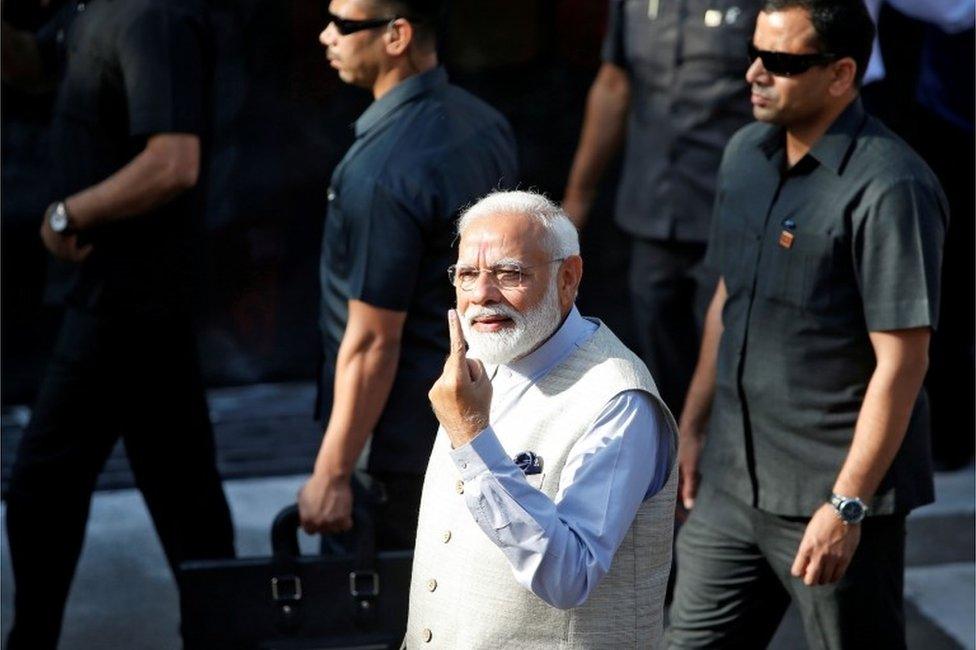
Mr Modi voted in Ahmedabad's Ranip seat
Indian Prime Minister Narendra Modi has cast his vote in his home state of Gujarat in the third phase of the country's general election.
He led what appeared to be a roadshow on his way to the polling booth in Ahmedabad, the city he lived in during his 13 years as chief minister.
He waved at the crowds that had gathered from an open-top jeep, which had replaced his usual bulletproof car.
Mr Modi is contesting from Varanasi, which goes to the polls on 19 May.
Around 180 million people are eligible to vote on Tuesday - 117 seats spread across 15 states and union territories are up for grabs. It is the largest stage of the whole election, which is being seen as a referendum on Mr Modi, who has been in power since 2014.
Allow X content?
This article contains content provided by X. We ask for your permission before anything is loaded, as they may be using cookies and other technologies. You may want to read X’s cookie policy, external and privacy policy, external before accepting. To view this content choose ‘accept and continue’.

It's also important for Mr Modi and his Hindu nationalist Bharatiya Janata Party (BJP), as Gujarat is his home state and where his political career began. Mr Modi won his first parliamentary seat from Vadodadara in Gujarat in 2014 - but he vacated it as he also contested and won Varanasi.
On Tuesday morning, Mr Modi first travelled to the capital city of Gandhinagar to meet his mother before going to Ahmedabad to vote.
After voting in the seat of Ranip, he walked down the street along with a local BJP candidate. He was surrounded by his bodyguards as he displayed his inked finger and waved at people.
Allow X content?
This article contains content provided by X. We ask for your permission before anything is loaded, as they may be using cookies and other technologies. You may want to read X’s cookie policy, external and privacy policy, external before accepting. To view this content choose ‘accept and continue’.
Allow X content?
This article contains content provided by X. We ask for your permission before anything is loaded, as they may be using cookies and other technologies. You may want to read X’s cookie policy, external and privacy policy, external before accepting. To view this content choose ‘accept and continue’.

Here's everything else you need to know about Tuesday's vote.
Rahul Gandhi faces a crucial (first) ballot
India's main opposition leader, Rahul Gandhi, is appearing on the ballot in Wayanad in the southern state of Kerala for the first time.
A win here is important to the Congress party, but Mr Gandhi is also standing in Amethi, his long-time constituency in the northern state of Uttar Pradesh. He will be on the ballot there on 6 May and if he wins both seats, he will vacate one of them.
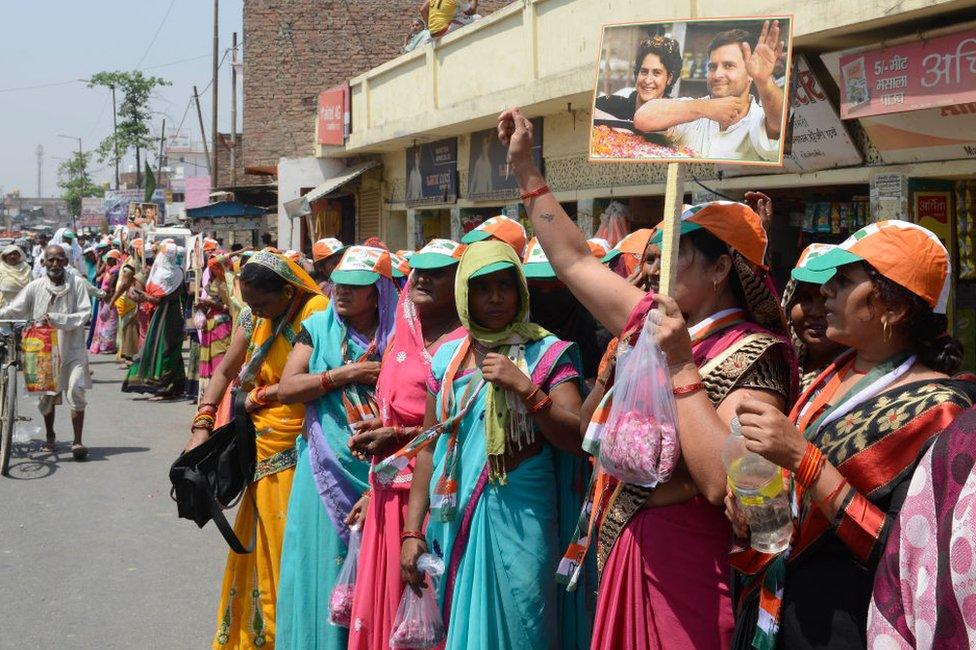
Mr Gandhi's supporters in Amethi, his family stronghold.
The Wayanad seat is considered "safe" for Congress: the party has won the two elections held there since the seat's creation in 2009.
But Amethi is Mr Gandhi's family stronghold. He has been an MP for the region since 2004 and his mother, father and uncle have all won it during their careers.
So his decision to stand in Wayanad - a lush, hilly area in the Western Ghats - was met with surprise. Congress has said it is a "message to southern states that they are deeply valued and respected".
But opponents wondered aloud if this meant Mr Gandhi is unsure of winning Amethi. After all, his margin of victory in 2014 - a little over 100,000 votes - was seen as too close.
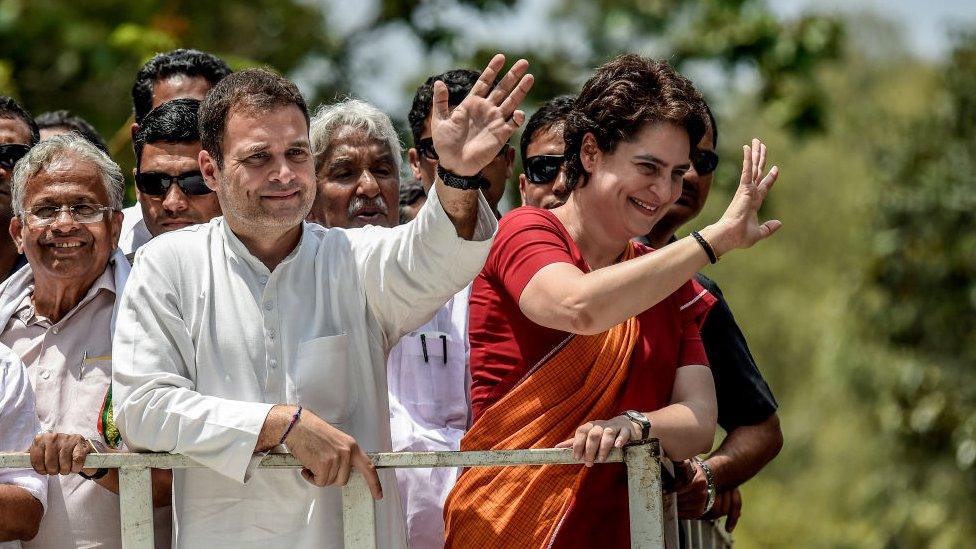
Rahul Gandhi is contesting from southern India for the first time
All of Gujarat is voting today
Mr Modi may not be on the ballot but there is still a lot interest in various seats - including Gandhinagar, where party president Amit Shah is contesting.
Among those hoping to unseat him is Vejli Rathod, a Dalit (formerly untouchable) man who says he is still waiting for charges to be brought following his son's death in a police shooting back in 2012.
Fed up, he decided to run against Mr Shah, one of India's most powerful politicians.
"Victory may come and go, but I am fighting against Amit Shah for justice," Mr Rathod told BBC Gujarati.
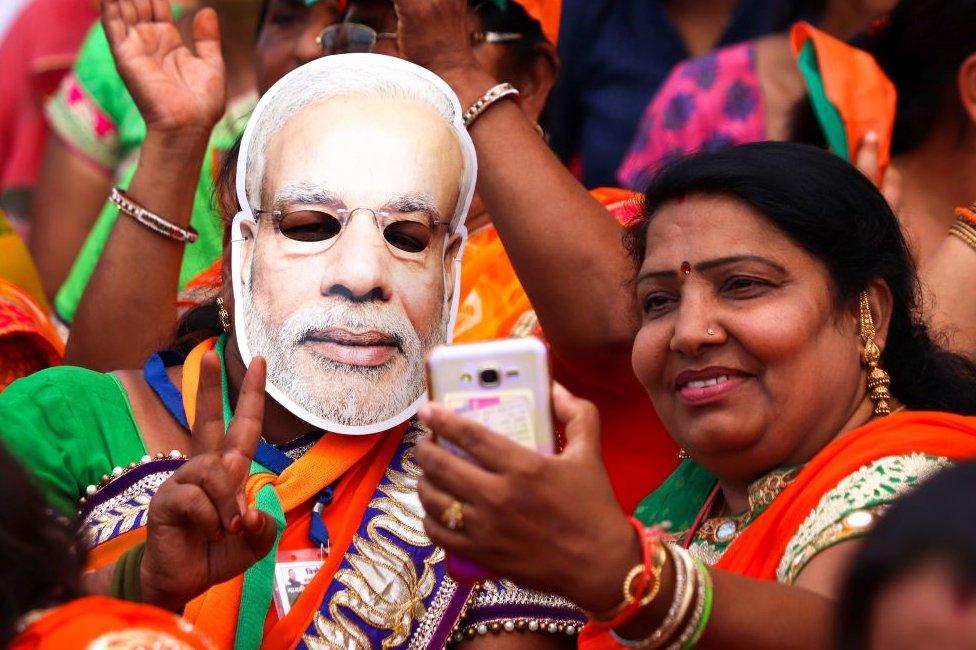
This election is largely seen as a referendum on Mr Modi
Election-watchers are also likely to take an interest in Congress's 37-year-old Sherkhan Pathan, the state's only Muslim candidate.
Muslims account for around 9% of the state's population, but Gujarat has not elected a Muslim MP since 1984. Only three of the five Muslim candidates who contested state polls in December won.
However, Mr Pathan argues that it isn't his religion which won him his place on the ballot.
"I've been chosen to run because I'm young and represent a wide variety of voters here - not because I'm Muslim," Mr Pathan told BBC Gujarati.
Will Sabarimala matter in Kerala's vote?
In September 2018, the Supreme Court overturned a historic ban on women entering a prominent Hindu shrine, Sabarimala - and this sparked huge protests across Kerala.

India votes 2019

The BJP, which argued that the ruling was an attack on Hindu values, was accused of exploiting the issue to court its mostly-Hindu support base.
The party has been trying to make inroads in the state for some time now but it has never won a seat in Kerala. This time its contesting 14 of the 20 parliamentary seats. The rest have been left to regional allies.
What are the key issues in this election?
The economy and jobs are perhaps the two biggest issues.
The government has invested heavily in infrastructure, but it hasn't produced the desired economic boost - annual GDP growth has hovered at about 7%.
The farming sector has stagnated and a leaked government report suggests that the unemployment rate is the highest it has been since the 1970s.
In fact, Mr Modi's government has been accused of hiding uncomfortable jobs data.
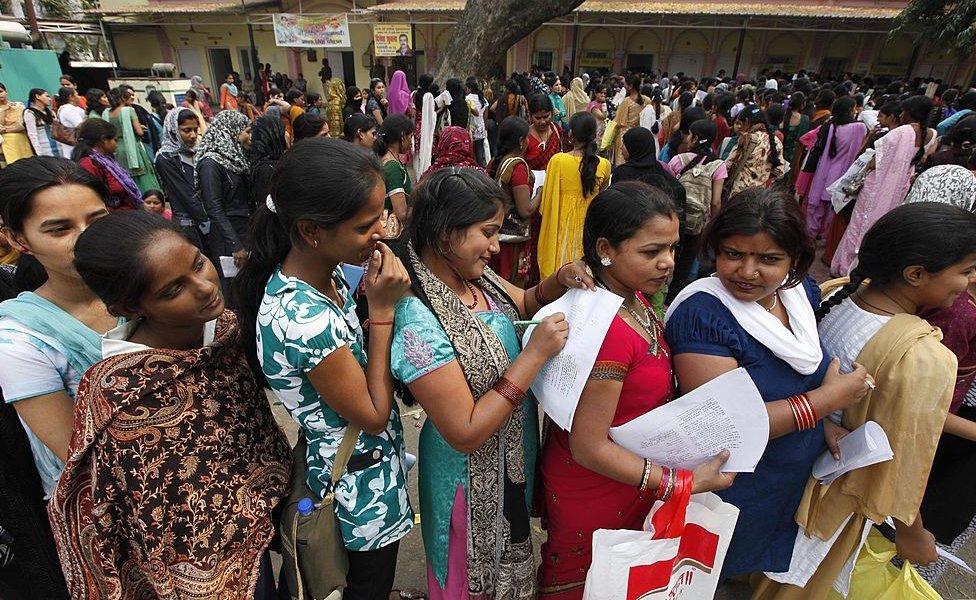
Joblessness is a major issue as the number of unemployed graduates swells
Meanwhile, national security has been thrust to the fore following a deadly suicide attack by a Pakistan-based militant group in Indian-administered Kashmir in February.
Since then, the BJP has made national security a key plank in its campaign.
For some, this election is also a battle for India's identity and the state of its minorities, while for others it's about enhancing India's position in the world.
Mr Modi is a polarising figure, adored by many but also blamed for the country's divisions. Many accuse the BJP and its strident Hindu nationalism of encouraging violence against minorities, including the lynchings of Muslims suspected of smuggling cows.

Facts and figures about the world's biggest democratic exercise

- Published22 April 2019
- Published10 April 2019
- Published11 December 2017
- Published19 April 2019
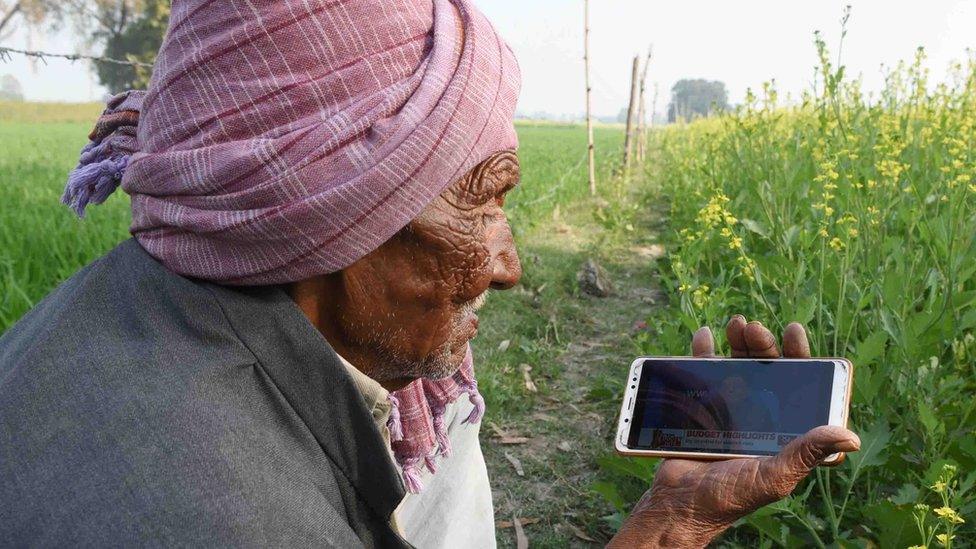
- Published16 April 2019
